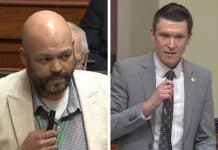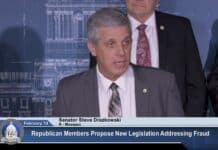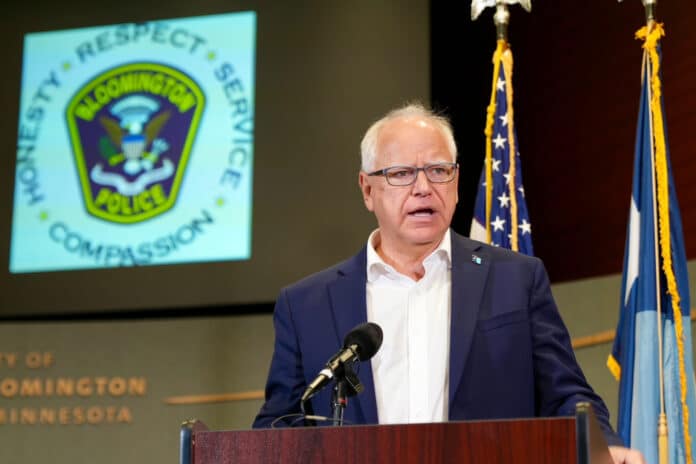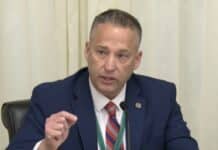Legislation banning binary triggers on firearms that Democrats passed last year took effect on Wednesday, Jan. 1.
And Gov. Tim Walz took the opportunity to celebrate the enactment date as part of a trio of new firearm restrictions he has signed into law over the last two years.
“We’ve strengthened background checks and passed a red flag law to keep guns out of the wrong hands,” Walz said in a New Year’s Eve post on X. “Tomorrow, our law banning deadly binary triggers goes into effect. We’re not hiding behind thoughts and prayers in Minnesota.”
That social media post drew strong criticism from some Republicans, including former Minnesota Senate Majority Leader Paul Gazelka.
Respectfully Governor, your response, laughing at those that pray, is disrespectful to the faith community. Many of us pray and then have actions, but those actions are contrary to how you think we stop crime. Think about your response. https://t.co/gt6zLG7Lth
— Paul Gazelka (@paulgazelka) January 1, 2025
“Respectfully Governor, your response, laughing at those that pray, is disrespectful to the faith community,” Gazelka wrote on social media in response to Walz’s post.
Binary trigger ban
The new law, which took effect on Jan. 1, modifies the term “Trigger Activator” in state statute to now include binary triggers and bans them from possession in Minnesota.
The law defines a binary trigger as a “device that allows a firearm to shoot one shot on the pull of the trigger and a second shot on the release of the trigger without requiring a subsequent pull of the trigger.”
The law now states that anyone who owns, possesses or operates a “trigger activator” may be “sentenced to imprisonment for not more than 20 years or to payment of a fine of not more than $35,000, or both.”
The law prohibits anyone from possessing a binary trigger, even if it is not installed in a firearm, according to an explainer from the Minnesota Gun Owners Caucus.
The binary trigger ban was included as a provision in a controversial 1,400-page omnibus bill that Democrats passed in the last moments of the legislative session in May. Republicans opposed the binary trigger ban and criticized its inclusion in the “jumbo” omnibus bill.
Critics of the new law include the Gun Owners Caucus, which told its supporters last year that while it opposes the legislation, and believes it is a threat to the Second Amendment, the final language was not as expansive as DFL authors originally intended.
“Earlier bill language before passage had a more expansive definition of a binary trigger that we believe would have impacted commonly owned Glocks and other firearms,” the organization said in a post explaining the new law. “That definition was changed on the Senate floor before passage and later adopted by the conference committee. The version, as passed into law, we believe, only impacts actual binary triggers and not other firearms.”
After Walz signed the legislation in May, he said that “as a law-abiding gun owner, a hunter, wherever it would be, nothing that has been passed impedes your right to own and possess a firearm in any way.”
Two other firearm restrictions that Walz and DFL legislative leaders pushed last session but were unable to pass included bills that would have required “safe storage” of firearms in homes and mandatory reporting of lost and stolen firearms.
Rep. Grant Hauschild, DFL-Hermantown, opposed both measures in the Senate, effectively preventing Democrats from putting the bills on Walz’s desk to sign. However, Hauschild voted in favor of universal background checks and red-flag legislation.
Hank Long
Hank Long is a journalism and communications professional whose writing career includes coverage of the Minnesota legislature, city and county governments and the commercial real estate industry. Hank received his undergraduate degree at the University of Minnesota, where he studied journalism, and his law degree at the University of St. Thomas. The Minnesota native lives in the Twin Cities with his wife and four children. His dream is to be around when the Vikings win the Super Bowl.









